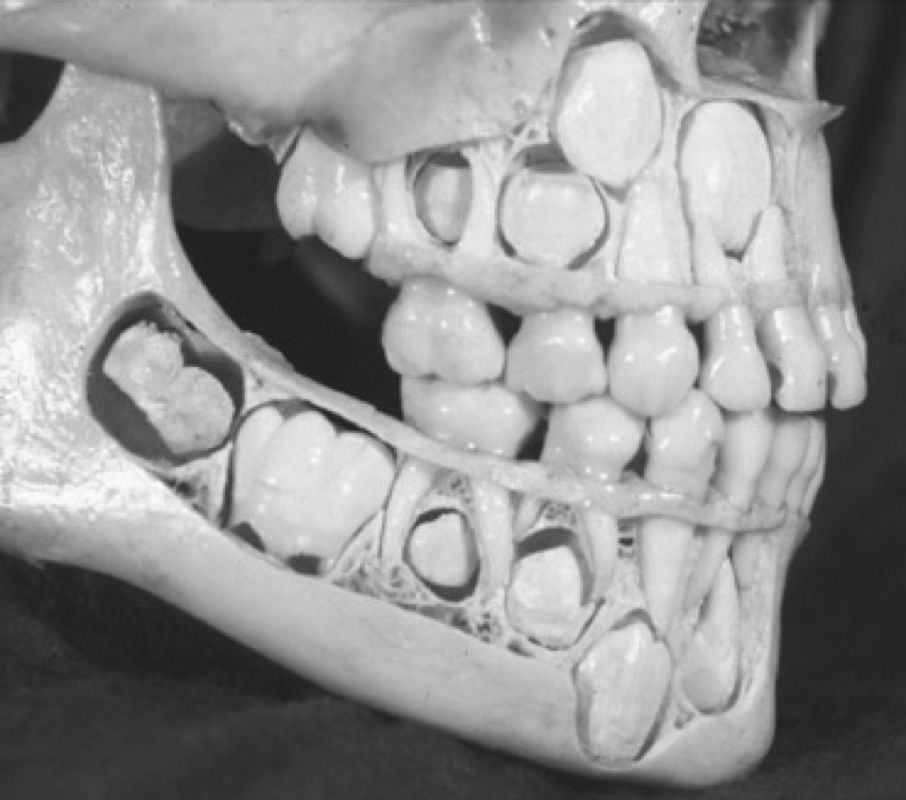At some point in her early adolescence, Julie knocks out her own tooth. Her mother, Barbra by birth certificate and Bobbie to friends and strangers alike, lost her front tooth before any of her children were born, when she lived in her hometown in California, on a cookie. Bobbie’s tooth is golden and shines in the sunlight; it matches her six golden molar fillings, three on each side. Bobbie moved to Arkansas to get married and have children, but every summer, she would return to the ocean town she had been born into, bringing her children – including Julie- along with her.
Julie was named Juli, but they change it when she is three, citing misspellings and mispronunciations. The added e is the fifth letter of the alphabet and becomes the fifth letter of her name. Five, of course, is the number of freedom and she spends the rest of her life chasing what was left off her birth certificate.
Julie comes from an old southern family via her father’s side, the kind that built banks and schools. She hates the sticky, oppressive heat of the South that weighs down her bones and swears that one day she’ll leave Arkansas and never come back. She reads books about girls who run away from home or orphans adopted by rich men who solve mysteries. She wishes for a life like that.
As a teenager, she runs track, fights boys, and sneaks out under the cover of the moon. She slips through the back door while the nightly train’s whistle shakes the house from its foundation. Julie is claustrophobic in her small town, the way everyone seems to think they know everything about her.
Eventually, Bobbie finds Julie’s footprints in the grass still wet with morning and just before her senior year, Julie is sent thousands of miles away to a boarding school in the Northeast. Or perhaps she runs away to the boarding school, a trail of fresh footprints behind her. The story changes depending on who tells it. Either way, by Fall Julie is exploring New York City by night, a few hours from Philips Exeter Academy.
Before all of that – before the midnight subway rides, before her first hangover, before the she starts calling home every Sunday just to hear the sound of Bobbie’s voice - she knocks out her own tooth.
She loses an incisor on the front right side because she is doing something she is not supposed to. She’s flying. Unafraid in her youth, she and her siblings slipped on socks, sprinted down the carpeted living room and then took off across the tile floor, sliding down the hallway as fast and as far as they could.
It was Julie’s turn, her face tanned by summer. She would have made her body lean and aerodynamic, the way she learned to swim, and her hair would have splayed into a blonde halo around her face. For a moment, she could have been anywhere, anyone. Nothing matters when you’re flying like that.
Then she smashed into the wall—she went one way, her tooth went the other.
Now Julie recites this story and others to her children like they are ancient myths, laughing in such a way that her fake tooth winks out at them. She met her husband in college and followed him back to his hometown in the mountains, exactly 99 miles from the closest real city. With her three daughters, they make a tight family of five. Her children come from an old, northern family full of teachers, the kind that taught generations of neighboring families. She makes herself content with these things.
When she looks in the mirror, she no longer recognizes her face. It happens slowly at first, and then all at once she realizes how different she is than the girl she was. Her teeth are colored with age, but a single fake is still the color of a freshwater pearl. Julie now carries the south in her skin, in tans that became age spots. She has bad ankles, so she can’t run anymore. She still calls Bobbie every Sunday. She complains that the northern air is too bitter for her taste and talks about moving back south sometimes. Her children roll their eyes; not me, her oldest daughter, still really just a child, says. I’m never coming back home after I leave this place.
Her daughters are restless – they dream of cities, places they believe will shock them awake. But each summer, Julie ignores their pleas for vacation, to be somewhere new and exciting. Instead, she takes them back to Arkansas, back to days that smell like sunscreen and moonflowers and nights where the grasshoppers and cicadas are whispering in the secret language of nature.
She claims that she wants her children to know Bobbie and her golden tooth, that they should know a piece of where she comes from. Really, she aches for something she cannot put into words, but she thinks maybe she needs to feel air with some weight, that her children should know the freedom of sliding across tile floors.
So when Julie’s oldest daughter – the one who shares her top-story smile and freckles - slams into a wall while running in socks down the hallway, Julie does not scold her. Instead, Julie cups her daughter’s face and kisses her cheeks and checks to make sure all the teeth are still there. That night, Julie and Bobbie, stay up talking about when they would go to California, about the hometowns that are no longer home. And when Julie’s oldest daughter is lulled to sleep by the train whistle, Julie lays awake and listens to the house’s foundation shake; it rattles her bones, reminding them of all that they’ve lost.
Kirsten Reneau is a writer living in New Orleans. Her work has been in The Threepenny Review, Hobart, Rejection Letters, and others. She has a website and is on twitter: @Reneauglow
